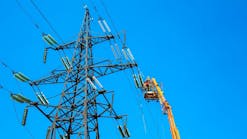As you may (should) know the 2014 soccer world cup is currently being held at Brazil. Even though I am not a huge soccer fan, I think this world cup is unique so far; I found great resemblances between the world cup and power engineering. There is no doubt that the world cup would not be possible if it wasn’t for all the efforts by engineers from various engineering fields, especially when the hosting countries have to go through a massive buildup of stadiums and other facilities. Below are some interesting similarities:
·Soccer world cup Vs. Football world cup; 60 Hz Vs. 50 Hz; metric Vs. non-metric system.
·So far most of the action occurred in the stoppage time; on average the stoppage time is three minutes, representing: 3% of the entire match. As we have seen, several teams either won, lost or tied in those few seconds, mainly due to the other team’s better strategy, misleading confidence, exerting more efforts in this short period of time, losing focus taking a probabilistic approach that the game is ending and nothing drastic will occur now. Similarly, utilities exert tremendous efforts to reinforce their system every year to be prepared for their system summer/or winter peak which occurs for few hours every year. We have to be on top of our game and more alert in this short time period compared to the remainder of the year.
·We are confident that certain teams that are comprised of qualified, top notch players will easily advance to the second round, yet they failed to play in harmony and win; this is similar to teams that are comprised of highly qualified employees from various groups that are unable to work together to accomplish the project’s goals. Utilities exert a lot of efforts to enforce team work and open communication to prevent this issue from occurring.
·Some teams had many great opportunities to score multiple goals, yet they failed horribly to score any; others played defensive the entire game, their main goal was to tie and not to win, they lacked confidence that they can play offensive and attempt to score.
·We witnessed great teams with a great track record comprised of great players, yet their performance was so poor so far; many blame their coaches for their miserable defeat. This is common in the utility when people blame upper management for most failures.
·We witnessed satisfactory teams with okay players, yet they managed to defeat great teams; many accredit this unexpected performance and victory to sound upper management plans and strategies (great coach strategy).
·Sound reliability record is not a sign of future reliable record unless they work harder every year to maintain their record and achieve more victories; I will not mention specific teams, but we have all seen how horrible certain world cup leaders and prior champions have played so far. You snooze you lose.
·Substitutes: ensuring the work will go on smoothly even if your key players are not available, injured, etc. Good management ensures that they continue operating adequately even if their key employees are sick, on vacation, retired, etc.
·Yellow card represents a warning to the team that certain players will miss the next game and that upon conducting another violation the player will receive a red card; the electric system is equipped with numerous alarms and indicators to warn against possible certain component failure, low voltage, high voltage, equipment approaching danger level, etc.
·Red card represents losing a major component of the system, whether temporary or for a long duration; planners must ensure that they can afford to lose their most critical asset. The idea is to prevent red cards from happening in the first place and in the unfortunate event when it does occur, the system should continue to perform in an efficient and reliable manner (n-1 contingency). Think of a second red card as a (n-2 event)
·Referees: represent existing procedures/guidelines/specifications/legal departments, city and state authorities overlooking the operation of the utility, auditors, legal departments; unfortunately sometimes the referees make the wrong judgment.
·People think utilities are making all the money; unfortunately they are not as lucky as FIFA.
·Own goals: teams’ worst nightmares and a sign that accidents do happen. Own goals have a negative impact on the confidence and morale of the team especially the player responsible for that goal. Several projects and events occurred because of an accidental mistake by one of their employees or operators.


